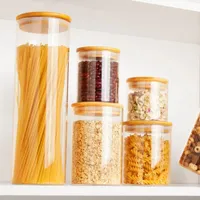How to get rid of maggots in the house – 5 simple steps that never fail, say pros
Pest control experts explain the strategic approach they always use to eradicate maggot infestations and prevent their return


Design expertise in your inbox – from inspiring decorating ideas and beautiful celebrity homes to practical gardening advice and shopping round-ups.
You are now subscribed
Your newsletter sign-up was successful
Want to add more newsletters?

Twice a week
Homes&Gardens
The ultimate interior design resource from the world's leading experts - discover inspiring decorating ideas, color scheming know-how, garden inspiration and shopping expertise.

Once a week
In The Loop from Next In Design
Members of the Next in Design Circle will receive In the Loop, our weekly email filled with trade news, names to know and spotlight moments. Together we’re building a brighter design future.

Twice a week
Cucina
Whether you’re passionate about hosting exquisite dinners, experimenting with culinary trends, or perfecting your kitchen's design with timeless elegance and innovative functionality, this newsletter is here to inspire
While maggots are undoubtedly one of the most unpleasant pests to find in your home, getting rid of them is fairly simple. Beyond simply killing and disposing of them, the process involves identifying what is attracting flies to lay eggs in your home and rectifying this issue to deter their return.
Maggots thrive on decaying organic matter, so if you are wondering why there are maggots in your house, well, their presence often indicates an underlying problem you must address – like a forgotten, rotting potato in the back of the fridge or a deceased rodent lurking in the walls. The good news is that with some prompt action, you can eliminate these unwelcome guests and prevent future infestations.
We consulted pest control professionals to pinpoint the source of the problem, how to kill maggots and implement strategies to prevent their return.
How to get rid of maggots in the house
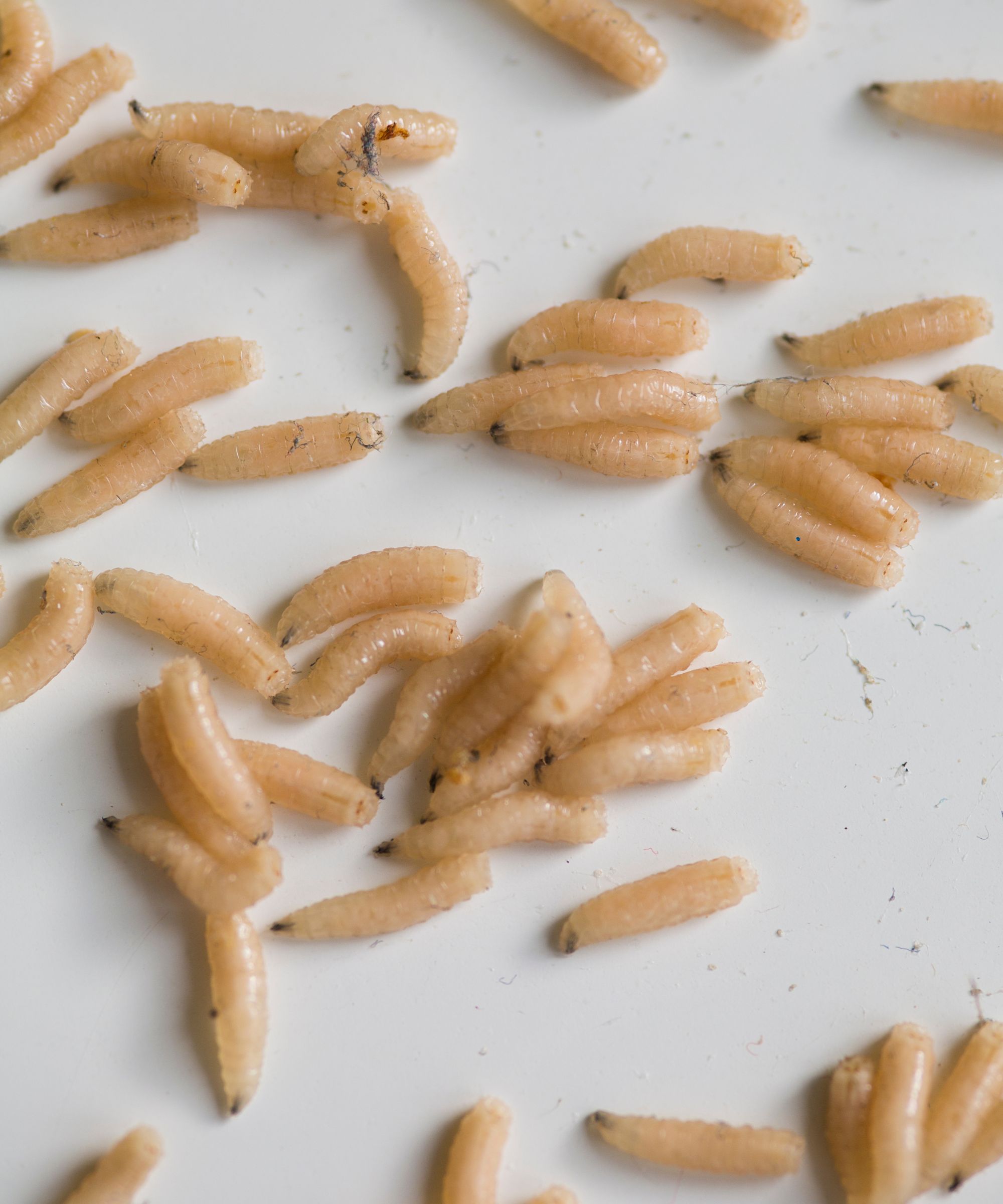
Maggots play a crucial role in decomposing organic matter and clearing away waste in the ecosystem. They're natural recyclers – just wildly unpleasant ones to have in your home. Below are five ways you can banish maggots from your home for good.
1. Identify the source of the infestation

The first step to get rid of maggots in the house is to identify the source that attracted the adult flies to lay their eggs there in the first place.
Search for the breeding ground. They need abundant food in order to stick around and common culprits include overflowing garbage bins, spoilt food, pet waste, clogged drains, or moist areas under the sink. This could also be animal feces or decaying matter trapped somewhere. A big hint to what this is will be anywhere you find maggots, there will likely be an attractant for flies.
Maggots are the larval stage of flies, so you will also need to determine if you have a fly infestation in your home. Check for any areas where flies may be entering your house, such as open windows or doors, cracks in walls, or gaps around pipes.
Design expertise in your inbox – from inspiring decorating ideas and beautiful celebrity homes to practical gardening advice and shopping round-ups.
Doing this will ensure you can completely exterminate all maggot infestations around your home and address these areas once you have disposed of the maggots to ensure they don't return.
2. Get rid of the maggots
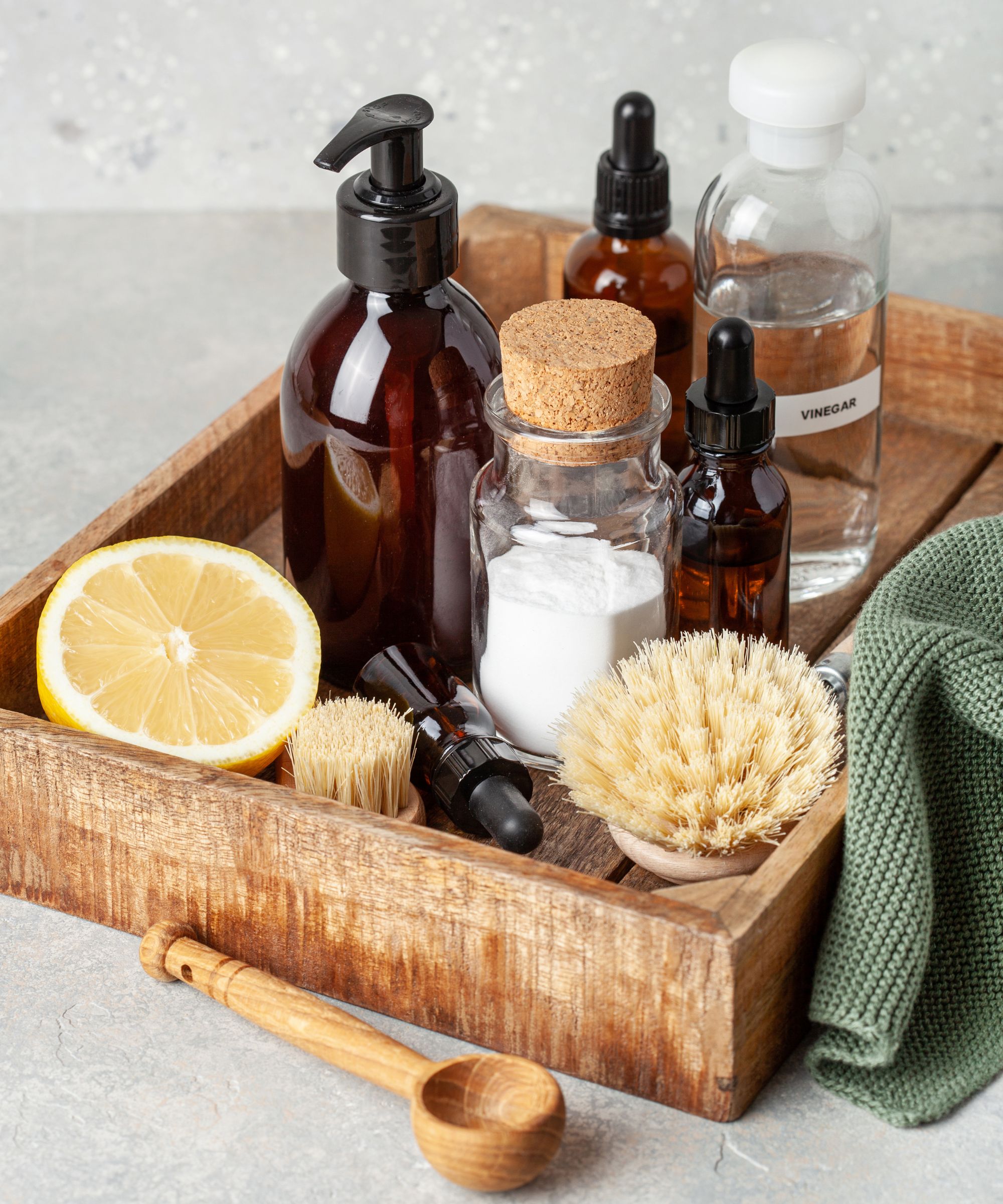
Once you have located all the maggots, it's important to kill them in order to properly dispose of them. 'The key is to be incredibly thorough to make sure the maggots have died entirely, then dispose of them well,' says Brett Bennett, Director of Operations at PURCOR Pest.
While insecticides are often the quickest and most effective way to do so, natural methods are more environmentally friendly. They can be safer when used near food prep areas or where children and pets have access.
Here are some effective methods to eliminate maggots:
Diatomaceous earth (DE)
'I have found diatomaceous earth (DE) to be one of the most effective ingredients for getting rid of maggots, whether they are inside your house or outside on your property somewhere,' says Jeremy Yamaguchi, CEO of Lawn Love.
'DE is a non-toxic powder made of the ground-up fossils of tiny aquatic creatures. This natural powder is a desiccant, meaning it dries out insects, effectively killing them,' Jeremy explains. 'Some products contain a certain percentage of other minerals or substances, but I recommend using Harris Diatomaceous Earth Food Grade with powder duster from Amazon because it is 100% pure DE.'
Sprinkle DE around infested areas and maggot pathways. Since DE can irritate the lungs, wear a protective mask when applying it.
Salt
Another natural desiccant, salt can be effective against maggots. Apply a thick layer of salt directly on the maggots to dehydrate them.
Vinegar and water
'One of the most effective ways to kill maggots is to douse them with a vinegar and water solution,' says Brett Bennett. Vinegar changes the pH level of maggot's environments, making it too acidic for them to survive.
Boiling water
A simple yet powerful option, boiling water is effective at killing maggots quickly.
Carefully pour boiling water directly onto the maggots. Just be cautious of using this method near flammable materials or electrical outlets.
Citrus juices
Citrus juices, such as lime and lemon, are lethal to maggots due to their acidic nature. 'Try spraying the area with some lemon essential oil to kill any remaining eggs,' suggests Ryan Farley, CEO of LawnStarter. You can use any of the oils from this citrus essential oil kit at Amazon.
Targeted insecticide treatment
Depending on the extent of the infestation or if it persists, you may need to use insecticide treatments to kill any remaining eggs or flies before they can propagate further.
Make sure to carefully read and follow the instructions on the insecticide product, and use caution when applying it in your home. Remember to keep children and pets away from treated areas and avoid spraying anywhere used for food prep or where kids and pets play.
'There are also safer organic approaches like using enzyme cleaners and introducing natural predators like beneficial nematodes,' says Brett.
3. Dispose of infested materials
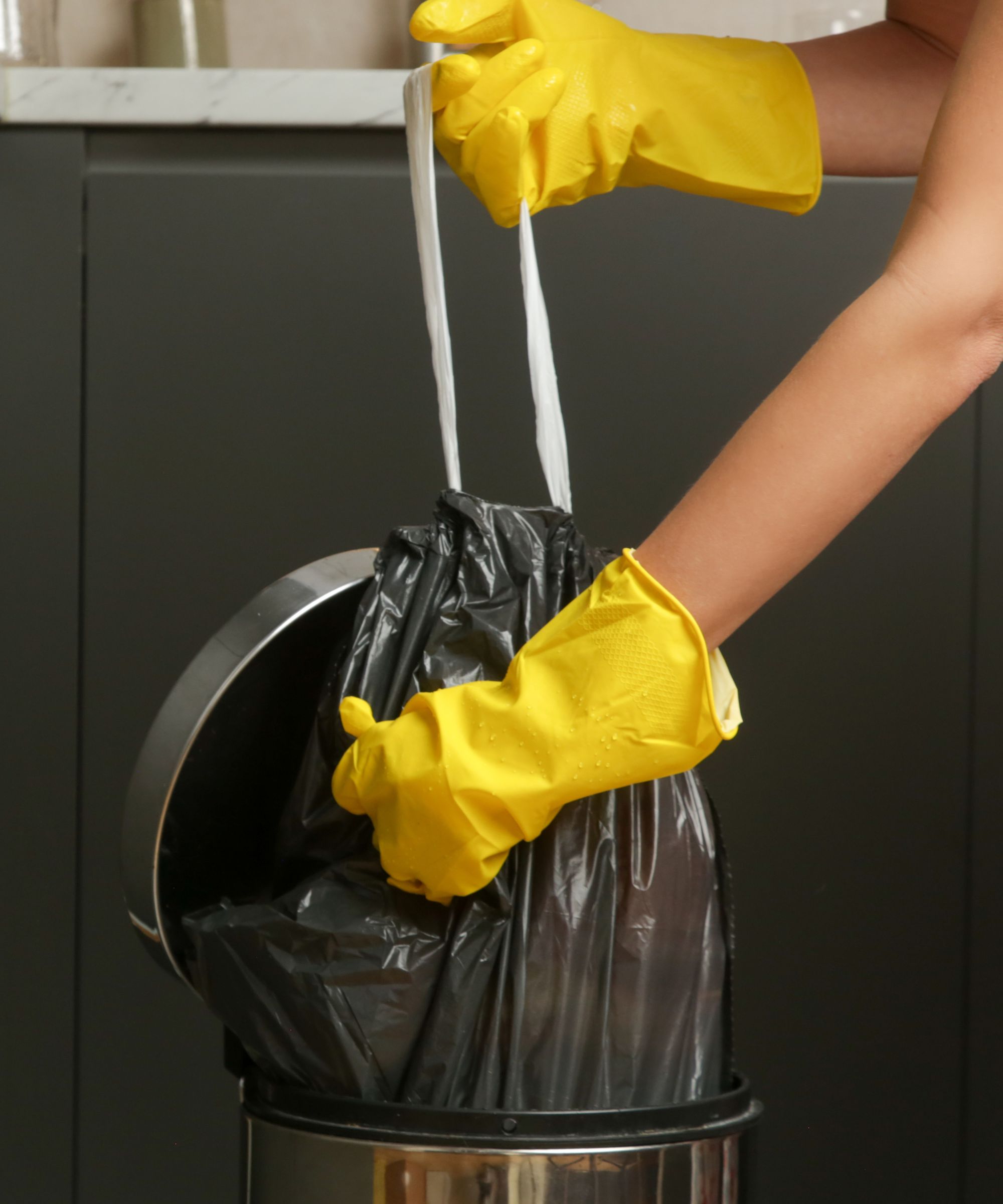
Once they are dead, carefully remove any maggots using a vacuum, sturdy paper towels to transfer them into a sealable bag, or a professional pest control service if the infestation is sizeable. If you have found maggots in food or other perishable items, dispose of them immediately. Wear gloves, seal the infested material in a plastic bag, and throw it away in an outdoor trash bin.
'Then, you’ll want to keep an eye on the location where you found the maggots for the next little while, making sure to keep the space plenty clean and sterile to mitigate the issue,' adds Brett Bennett.
4. Clean and disinfect the affected area
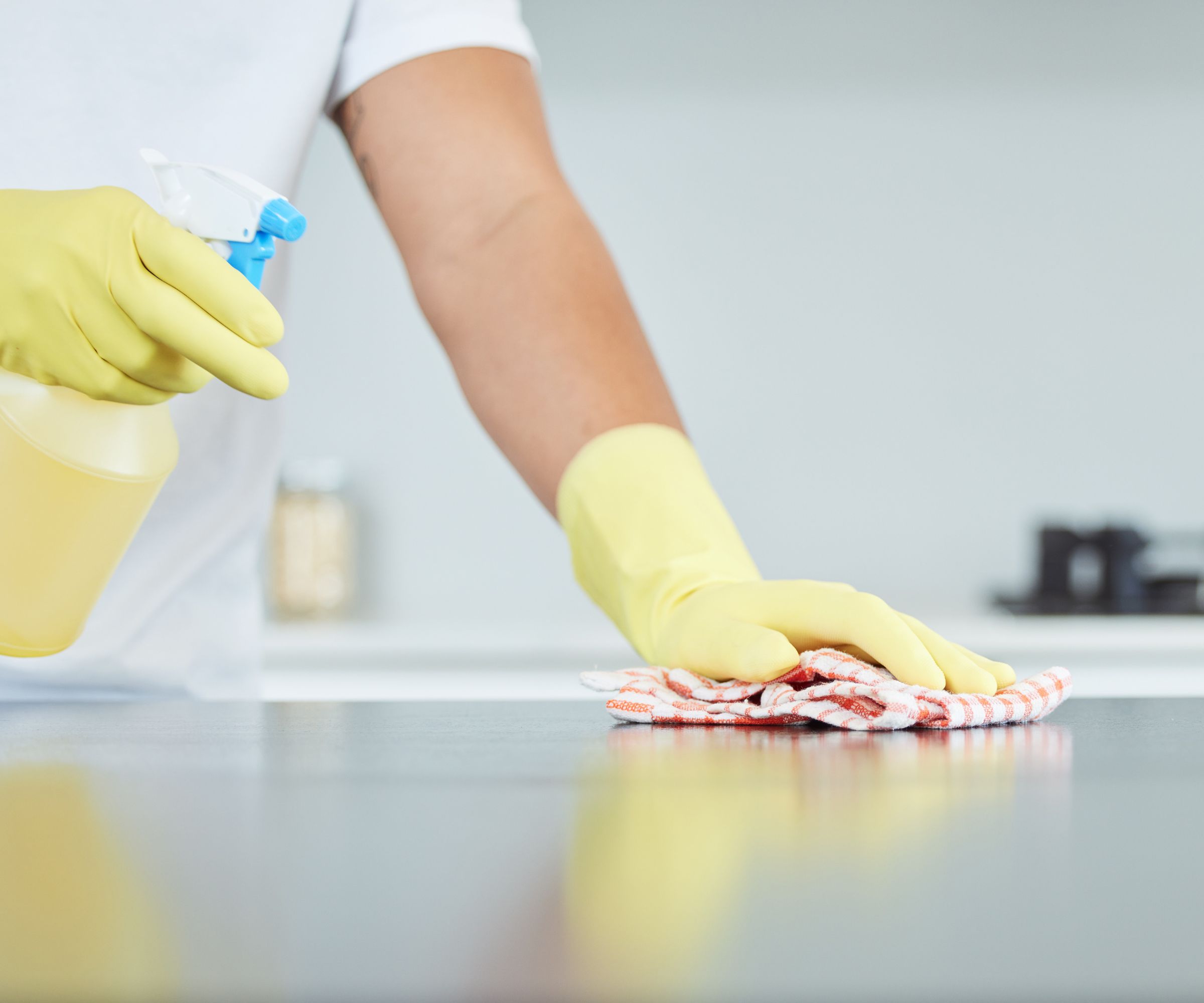
Once you have identified the source of infestation and removed any maggots, it is important to thoroughly clean and disinfect the area. Maggots can thrive in moist and dirty environments, so make sure to scrub and disinfect any surfaces where you have found them.
Use hot water and soap to clean the area, and then follow up with a disinfectant such as cleaning with vinegar or bleach. This will kill any remaining maggots and prevent them from returning.
A thorough cleaning of your trash cans, refrigerator, pantry, and drains should take care of the problem. If it doesn't, this means that they're getting food from somewhere else, potentially from dead pests in your walls or under your porch.
4. Take preventative measures
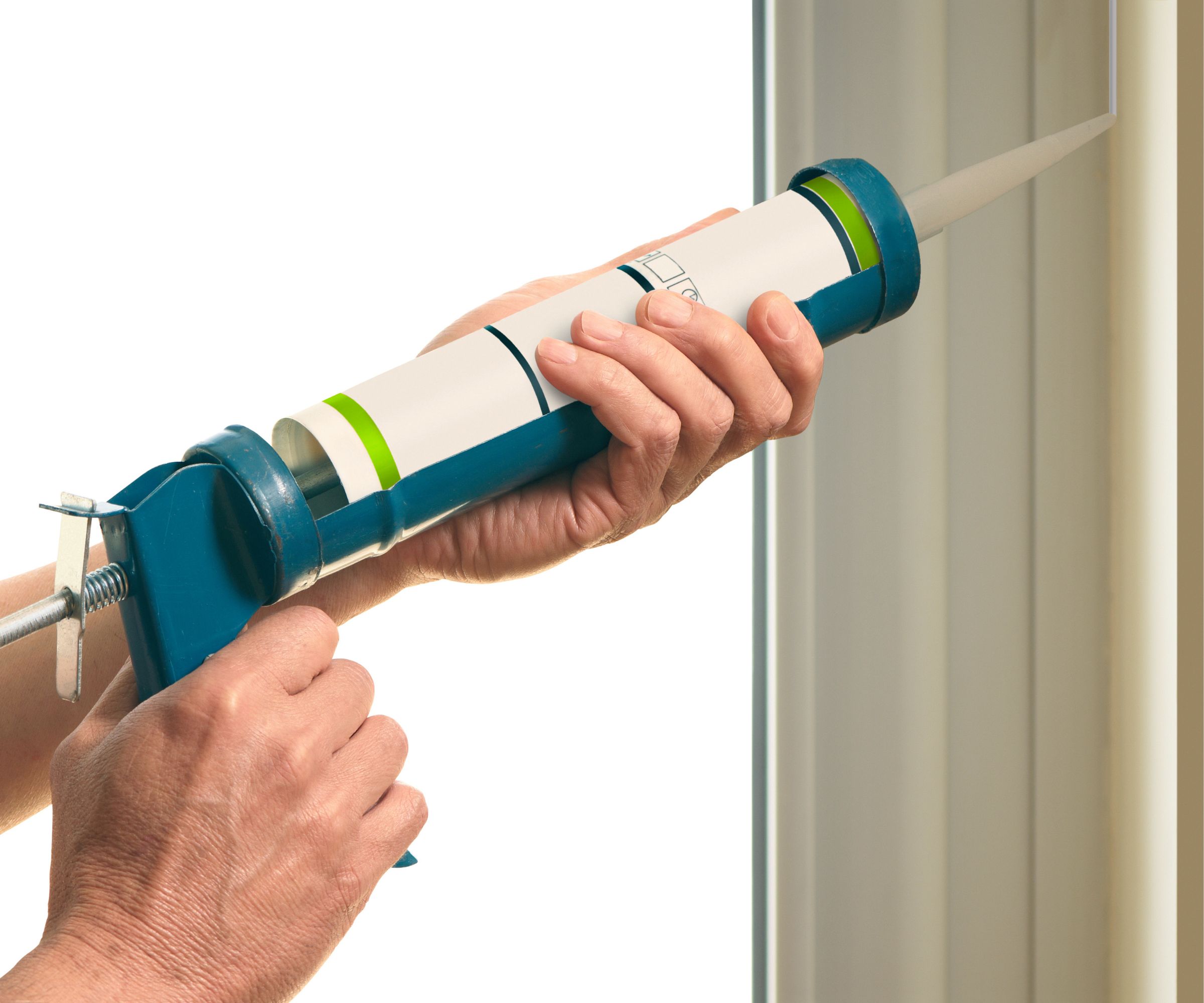
This final stage is all about deter these pests from returning. To do this, you'll need to address the sources of their entrance and attraction to your home.
Seal cracks and crevices
If flies appear to be entering your home through cracks or crevices, seal these where they could slip inside to lay new eggs. You can use weatherstripping, caulking, or expandable foam to prevent flies from entering your home in the first place.
It may also be helpful to use fly screens on your windows or invest in a bug zapper to prevent flies from entering your home. We recommend this electric fly killer lamp, from Amazon.
Practice routine cleanliness
To avoid future infestations of maggots or flies, keep your house clean and free of food debris. Practice good hygiene habits like regularly taking out the trash, cleaning up spills promptly, and storing food properly in airtight containers.
These simple steps can stop maggot infestations before they even begin.
VTOPMART Glass Canister Set | $26.99 from Walmart
Keep your food sealed in storage containers to prevent flies from getting inside and laying their eggs.
Use scents to repel flies
Using scents around areas prone to maggot infestations can deter flies from laying eggs here. Citrus, peppermint, lavender, eucalyptus, basil, rosemary, and clove will all work.
There are plenty of techniques you can use to spread these scents around while making your home smell nice, such as with scented sachets, an indoor herb garden, or essential oils from Amazon, which can be used to wipe the scents onto counters, diffuse scents into the air with a diffuser or to create scented drawer liners.
Just like when you need to get rid of ants in the kitchen, following this methodical order can not only remove maggots from your home but make it an unattractive environment for flies to lay eggs.
This way, you can save yourself hassle in the future by regularly engaging in preventative measures as part of your cleaning routine and keeping an eye out for flies continuously sneaking into your home.

Lola Houlton is a news writer for Homes & Gardens. She has been writing content for Future PLC for the past six years, in particular Homes & Gardens, Real Homes and GardeningEtc. She writes on a broad range of subjects, including practical household advice, recipe articles, and product reviews, working closely with experts in their fields to cover everything from heating to home organization through to house plants. Lola is a graduate, who completed her degree in Psychology at the University of Sussex. She has also spent some time working at the BBC.
